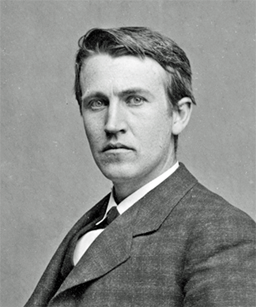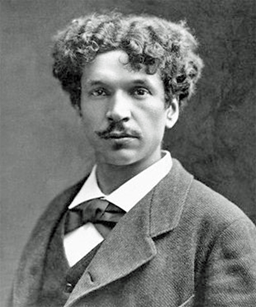
Thomas Edison was catapulted to international fame with his 1877 invention of the phonograph—a machine that recorded and played back anything that it “heard.” But Edison was not the first person to record sound. That honor goes to Edouard-Léon Scott de Martinville, a French inventor who in 1857 devised his phonautograph—a machine that inscribed the vibrations of airborne sounds onto a permanent medium.
Scott’s phonautograph was an extraordinary instrument. From the beginning of time, sound had been invisible and fleeting. The phonautograph made it both visible and permanent by writing it to paper. In this way sound waves could be studied as never before. Sound recording was an exceptional achievement in 1857.

Edison’s phonograph was also extraordinary. Not only did it record sounds, it allowed them to be reproduced at will. This was so astounding that the phonograph singularly established Edison’s international reputation as a prominent inventor.
Edison’s phonograph is widely remembered by historians as a triumph of 19th century innovation. But until recently Scott’s phonautograph was virtually forgotten. The modern rediscovery of Scott’s recordings in French archives, and their playback by American researchers, firmly establish Scott’s role in the history of sound recording. This website presentation recognizes Scott’s achievement on the bicentennial of his birth.
Edison was unaware of Scott’s success as he undertook experiments that led to the phonograph. He was also unaware of an idea put forward by another Parisian, which leads to the question:

Like sound recording, sound reproduction (or “playback”) was independently conceived in France and the United States. Parisian Charles Cros jotted down a proposal to play back the sounds stored in Scott’s recordings just weeks before Edison first expressed his idea for the phonograph. However, unlike Scott and Edison, Cros never made a machine to prove his concept, nor did others who tried. Cros’ idea was a proposed process and not a realized machine. Still, Cros is recognized for conceiving of sound reproduction before Edison.